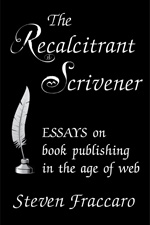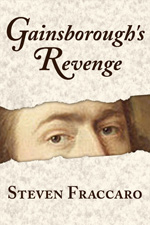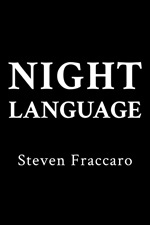The struggle between Amazon and Hachette drags on, as it has
since February. It’s safe to say that Amazon’s tactics have been heavy handed
and coercive. Nevertheless, an enormous amount of nonsense has been written
defending Hachette and the major publishing houses. Numerous Hachette authors,
most notably Malcolm Gladwell and Stephen Colbert, have rallied to the
publisher’s defense. A much larger number of self-published writers are
supporting Amazon. What is going on here?
The main bone of contention is rumored to be Amazon’s effort
to reduce Hachette’s percentage of ebook revenues from 70% to 50% of gross. No
one knows whether this is actually true, as the companies aren’t providing any figures.
Nor do they appear to be “negotiating” in any meaningful sense. Beyond that,
there is the feeling that Amazon wants to position itself as the sole arbiter
of ebook prices. This potential loss of decision-making power in the
marketplace is what particularly irks traditional publishers, perhaps even more
than the issue of the percentage “take.”
Various officers of the Authors Guild, an organization of
which I am a member, have rallied to Hachette’s defense. The problem is that
whenever Richard Russo or anyone else pens a lengthy missive defending
traditional publishing, they provide one side of the story, conveniently
leaving out a number of essential points. Namely, that the typical publishing
contract is a highly abusive document and that in writing a book, the average
author earns less than minimum wage.
No matter how this
turns out, rest assured that no one is going to suggest that authors have a say
in the pricing of ebooks. Writers and their books are simply the pawns in this
game.
It seems to escape notice that authors published by Hachette
have everything to gain by demanding that the publisher split net ebook
revenues 50-50, as is done with all other media sales (eg, paperback and movie
rights.) If anyone were to actually do the arithmetic, they would see that this
would more than make up for any reduction by Amazon in payments to the
publisher.
No one wants Amazon to rule the world, or to cut the
publisher’s percentage of ebook revenues. But writers should try to win the
best terms possible from each of the parties involved. And remember, we’re
talking about multi-billion dollar corporations, not benevolent but beleaguered mom-and-pop
operations.
A publisher would no doubt argue that being squeezed from
above by Amazon and from below by authors would put the company in an untenable
position by reducing its profit margin. Which I find darkly humorous, as the
overwhelming majority of professional writers I know simply cannot make a
living from writing books, whether fiction or nonfiction.
What no one is admitting is that Amazon’s hegemony is the
result of incompetence on the part of the major publishers. Now, a business can be
incompetent and still make money, for many years. But when the landscape
changes, the incompetence is revealed, dramatically so.
Postscript
To the average reader, this discussion must seem dull as
dishwater. People want ebooks that are significantly cheaper than hardcovers
and trade paperbacks. The famous authors who have been backing Hachette are
highly privileged individuals who are treated well by their publisher and receive
very large advances. In contrast, the vast majority of writers with a
publishing contract receive miniscule advances and are treated rather shabbily by
their publishers.
Maybe it’s time for
the serfs to rebel. Or at least to demand better contracts.
For a revealing look at what ebooks mean for a mid-list
author, take a look at George Anders’ recent piece in Forbes.
To view the overwhelmingly negative and often acerbic remarks
directed at the Authors Guild hierarchy by both members and nonmembers, check
the Comments section on the Guild’s blog.





